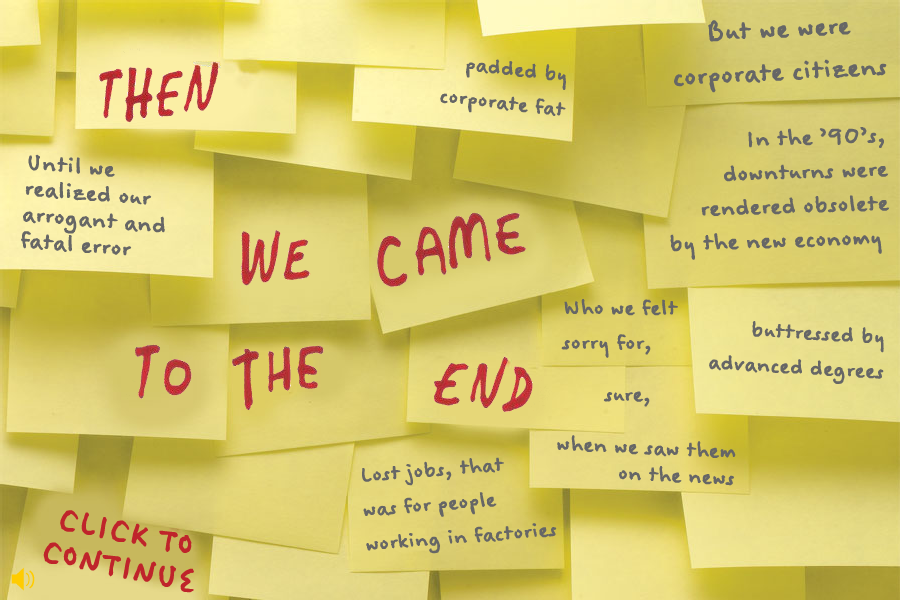
The other day I was in Posman Books at Grand Central Station, where they always have a really great browsable table of fiction. I started talking to this woman who was holding a copy of Joshua Ferris’s And Then We Came to the End. She was shopping for her husband’s fiftieth birthday or something. I was psyched that someone was actually that jazzed about fiction. So from so many great choices, I hand-sold her my two favorite books from the last year and a half or so: the Josh Ferris and Claire Messud’s The Emperor’s Children.
On Amazon, Emperor’s Children has a couple hundred reviews, and opinion is totally split. I have to say at first it sounded like some kind of hoity-toity bourgeois-fest, a novel of manners, apparently, revolving around a rootless trio of privileged 30something Manhattanites. I had seen Messud speak once at Columbia and it seemed like she wrote super thinky artsy little novels. I was swayed, however, but one of those excellent Slate Audio Book Clubs about it. They called Messud a kind of modern-day Edith Wharton (who happens to be another writer that I feel is severely underrated because she’s female and writes about the subtly of human interaction). Once I got into it, I found Emperor’s Children completely engrossing, a “literary page turner” as some critic said. It was smart and you wanted to keep reading it. That’s not to say that the characters always felt true or that Messud really has an authentic grasp of the environment she’s writing about (I've read a lot of people pointing out how she puts her own British/Canadianism into the mouths of bona fide American characters). But the book did have a lot of power and imagination behind it—and what’s more, it’s one of those books that made me want to write more.
Ferris’s book is so buzz-worthy that you kind of want to hate it—it’s the literary version of “The Office,” it’s written in the third-person plural, it uses the ad world to sort of reflexively comment on Our Times. But once I got past the gimmicks and the jokiness, I found myself thinking about how one of my teachers at Columbia, Richard Locke, spoke about Nabokov. I would always ask Professor Locke how is that Nabokov is so £*$&!*&$ amazing. His answer was that Nabokov was a master of combining pity and delight. And so in the best, most incredible moments of ATWCTTE, you’re totally buzzed on the language, the humor, the inventiveness—delight—and then Ferris will hit you with the revelation of some profound frailty in one of his characters. Those juxtapositions produce a lot of wow moments in the book. I totally agree with a lot of people that this book could have been trimmed like 100 pages, but read it, it’s worth it.
I’m one of the world’s laziest readers, I’m always starting books and then not finishing them, so a book has to do a lot for me to stick with it. These were my wow moments in reading for the last year, but I’m always open to suggestions.
And for all the DeLillo nerds out there (I can’t be the only one), Ferris’s title is the very first sentence of DeLillo’s debut novel, Americana. Neat homage!





No comments:
Post a Comment